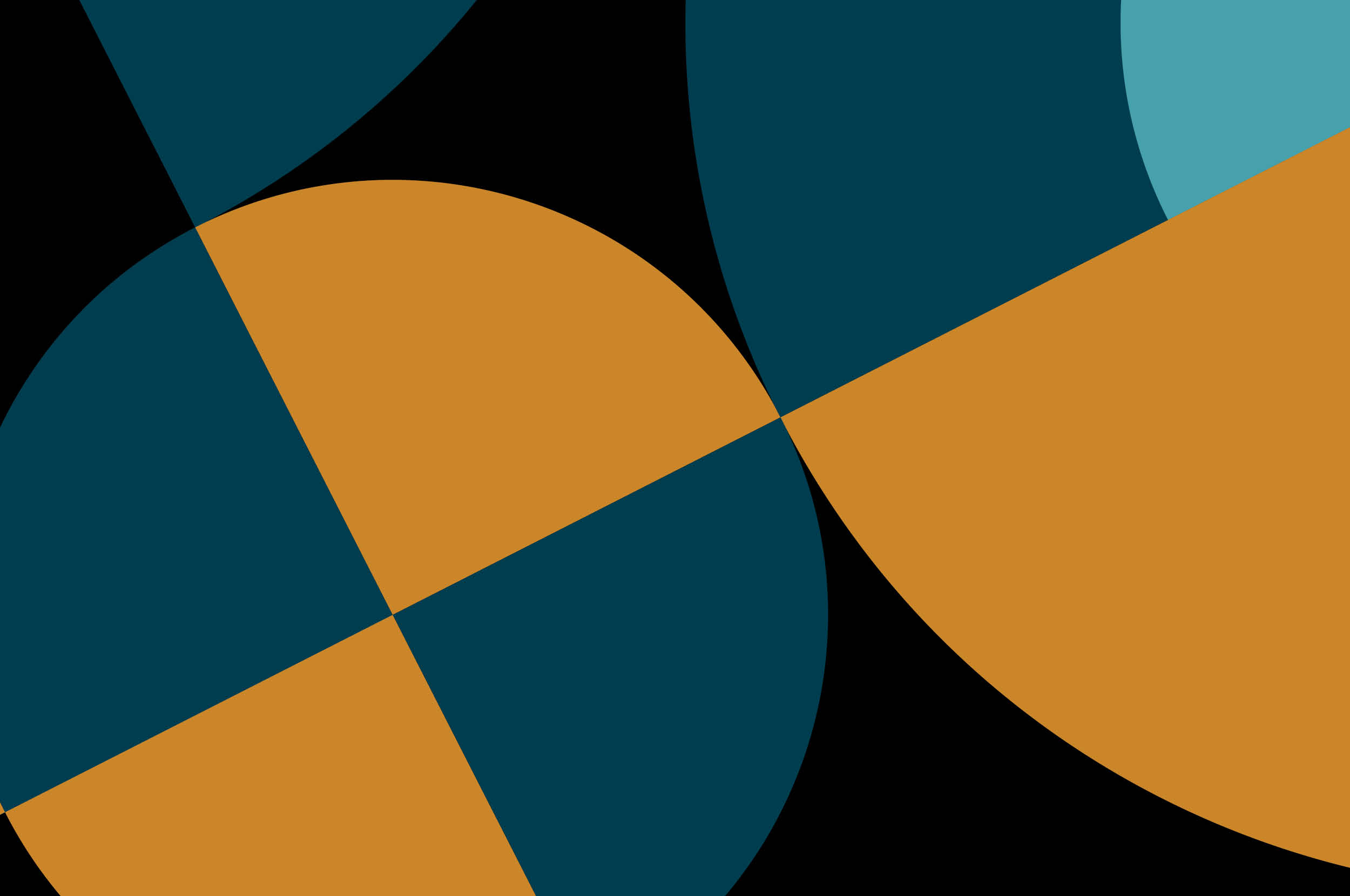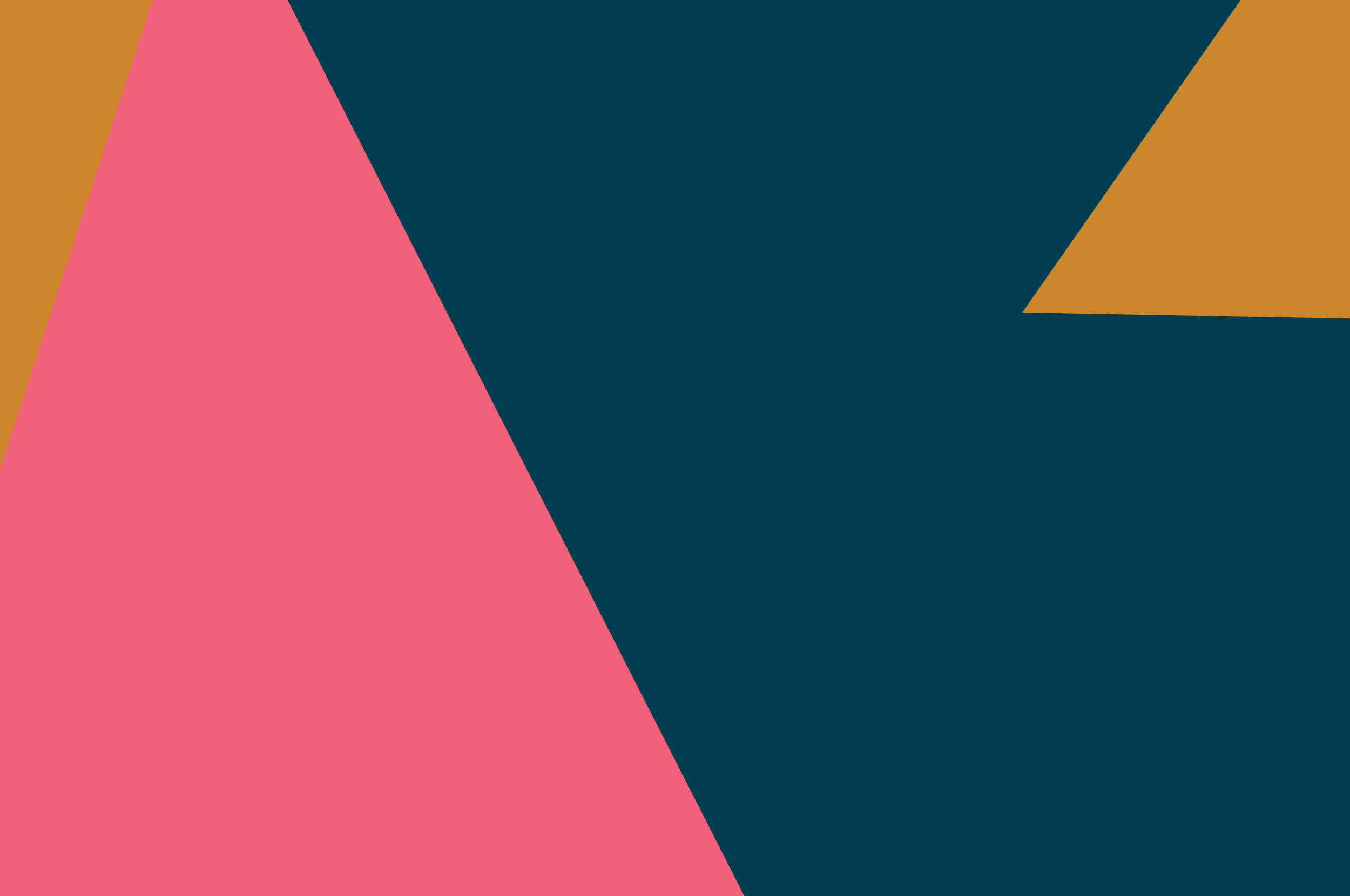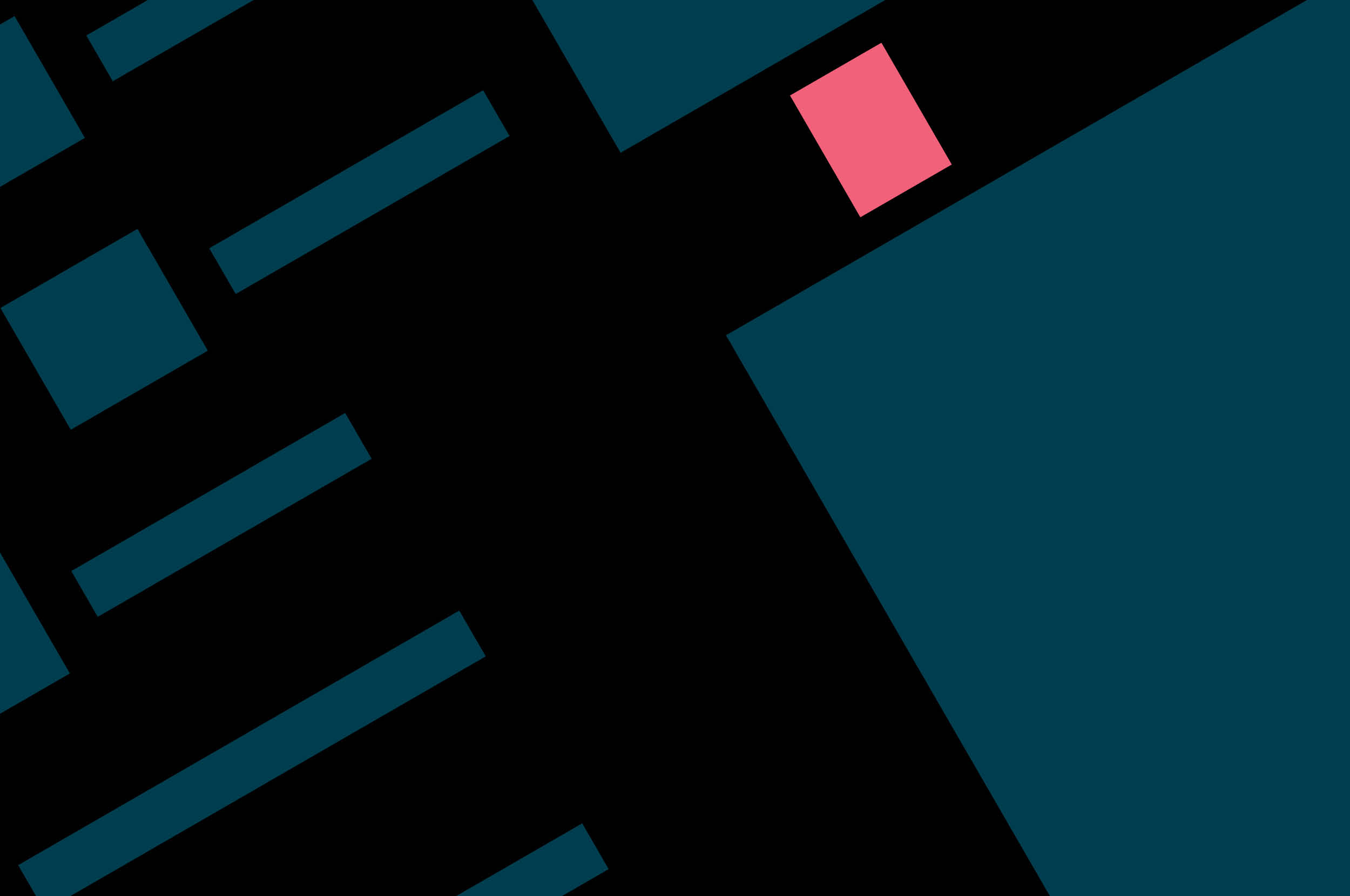TL;DR
María Caparrós hired Giovanny Sayas as a Senior Developer Consultant in the middle of Spain’s lockdown and he couldn’t be happier to be at Thoughtworks. (Yay!)
The long version
During the early days of Spain’s lockdown, Giovanny Sayas, a full-stack developer with a background in microservices, continuous delivery, automated testing, and TDD, made the decision to join Thoughtworks. Despite the difficulties that accompany a global health crisis, he was enthusiastic about his new role as a Senior Software Consultant. As a passionate and determined agile evangelist, it was easy for Maria Caparros, his recruiter in Madrid, to sense that Thoughtworks and Giovanny would be a perfect match. Now that he’s been with Thoughtworks for a few months, they’re reconnecting to check in and share more of his story.
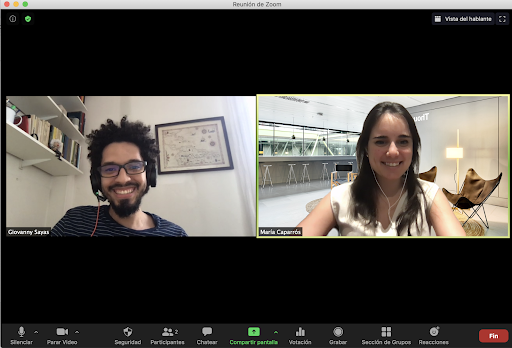
Meet the recruiter: María Caparrós
Thoughtworks home: Madrid, Spain
Joined in: November 2019
Meet her hire: Giovanny Sayas, Senior Software Consultant
Thoughtworks home: Barcelona, Spain (by way of Colombia)
Joined in: March 2020
Hi Giovanny! Thanks for interviewing with me again...now as a Thoughtworker! Exciting, isn’t it? I’d love to hear more about your thought process back when we were first talking. How did you first come to hear about Thoughtworks? What did you know about us before you joined?
Sure! Back when I was in University, I read some of Martin Fowler’s work and his ideas shaped a great deal of my understanding of software development. I noticed he had a strong link with Thoughtworks, so I started to follow them on social media. Since then, I’ve always seen Thoughtworks as a very prestigious and unique player in the tech industry. More recently, I heard from a friend at Thoughtworks that they were serious about applying good software practices to deliver value for their clients. I also became a regular reader of the Tech Radar, which is a great resource to navigate the vast technology landscape.
Fantastic! Agreed, Thoughtworks really embraces and promotes knowledge sharing. Many Thoughtworkers are published and Martin Fowler is a great example of this. Would you say that was the main reason you applied?
That helped a lot, yes, as did the company’s reputation of technical excellence. But the main motivation came when I learned about the company’s culture and values. At this point in my life, I wanted to feel connected to my teammates and be part of an organization that was doing something for the greater good, besides purely professional or economic profit. I was sure I wanted to join when I heard about Thoughtworks’ commitment to social change and D&I.
We talked a LOT during the recruitment process and I always appreciated your flexibility and curiosity; you genuinely seemed very excited. Do you remember how you felt throughout the process?
My recruitment process happened during a very special moment of my life. A few days before my first call with you my baby was born, and then I was on paternity leave. My partner and I were exhausted, obviously, yet we immediately recognized this was a great chance for us. She was amazingly supportive because she knew how passionate I was about good software development practices and we both wished that I could work at a place where I could feel satisfied on both a professional and ethical level.
We made a plan so that I could prepare for the interviews and I remember those couple of months as a time of intensive learning: I did code katas, read books, and refreshed many technical concepts while learning the very basics of parenthood. In the end I really enjoyed the recruitment process. I felt I had the opportunity to demonstrate who I am and what I knew at that moment. At the same time, I felt it was very thorough. It pushed me to expand my own boundaries.
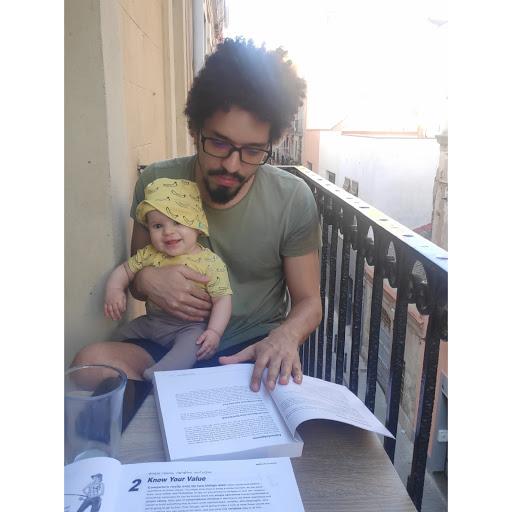
Yes, I remember you mentioned that in one of our feedback sessions. We believe looking at a person’s potential is just as important as what they know today. So which stage of the interview process did you enjoy the most? Or find to be the most challenging?
I really loved the second technical interview. I enjoyed talking about software development and taking into account the many different aspects involved. In that interview, I was asked questions not only about technologies or design but also tricky situations I had encountered in leadership positions or even as a former entrepreneur in the industry. It was a quite fun, yet profoundly technical conversation.
Did you learn anything new during the process?
I did find it to be very enriching. I understood that when it comes to technical discussions, it’s more important to make sure the tradeoffs and the reasoning behind design decisions are clearly stated instead of trying to give the right answer to “win” the discussion. I also realized that we’re allowed to be creative and resourceful when it comes to communicating complex technical ideas. Software development is as much about effective communication as it is about technical expertise.
That’s so true. As a consultant, the ability to effectively communicate the value that technology brings to our clients is just as important as technical skills. Do you feel like the recruiting process reflected what it’s like to work at Thoughtworks? Did anything feel different once you joined?
It actually overcame my expectations! I knew that Thoughtworks cared about employees’ career growth, but I didn’t know about all the roles, activities, guides and sponsoring that the company has to foster this. That was a great discovery and I think we should talk about it more during the process!
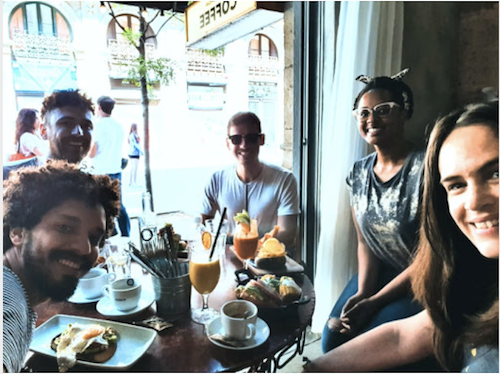
Thanks for the feedback! Now that you’re a Thoughtworker, what do you love most about working here?
It’s amazing to be surrounded by such talented and passionate people that share certain values and principles. The atmosphere is inspiring and promotes constant knowledge sharing. Also, I think it’s especially important to mention the empathy and humanity I’ve seen at Thoughtworkers exhibit in these times of crisis. Thanks to the company’s frequent and transparent communication, I’ve always felt safe and supported.
On the more technical side, a very valuable thing for me is the autonomy that we as developers have in terms of control of the lifecycle of the development process. Every developer is responsible for the kind of tasks that a traditional DevOps is usually in charge of and everyone is expected to have a solid agile mindset to help drive the direction of the project. Now I can easily visualize making a long-term career for myself here.
Awesome, I’m so glad you feel safe and supported here. Lastly, what advice do you have for candidates?
To future candidates, I would say be open and enjoy the process. Take your time to think about your answers and give lots of detail, since the interview process is trying to assess how deep and broad is your knowledge in a short period of time. Lastly, I’d like to stress this advice: put your own principles and values at the center of your life choices (including professional ones): it makes a huge difference.
Aviso legal: Las declaraciones y opiniones expresadas en este artículo son las del autor/a o autores y no reflejan necesariamente las posiciones de Thoughtworks.
















